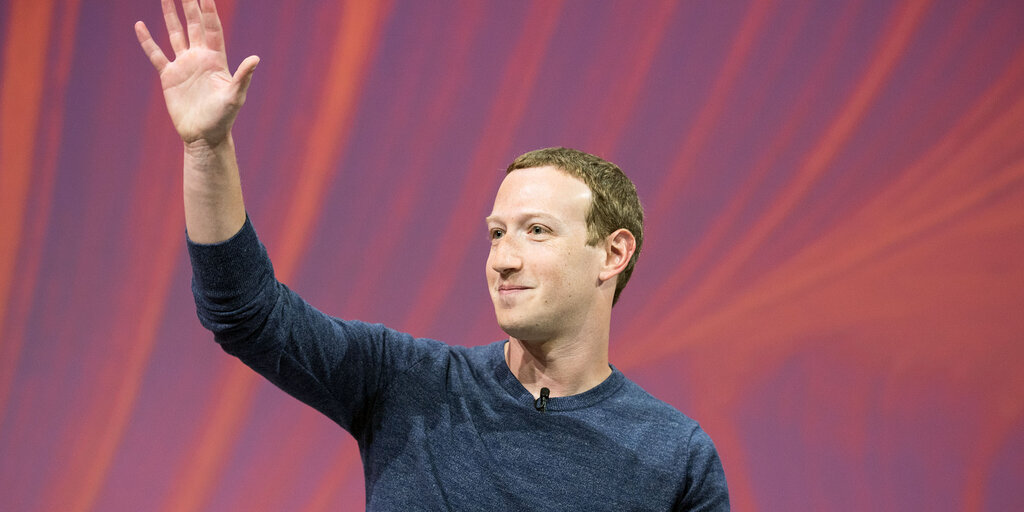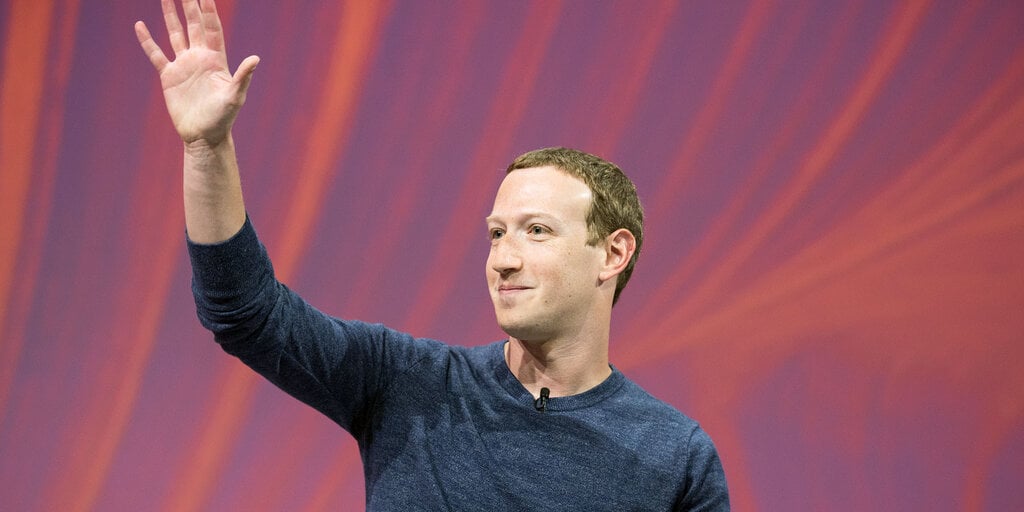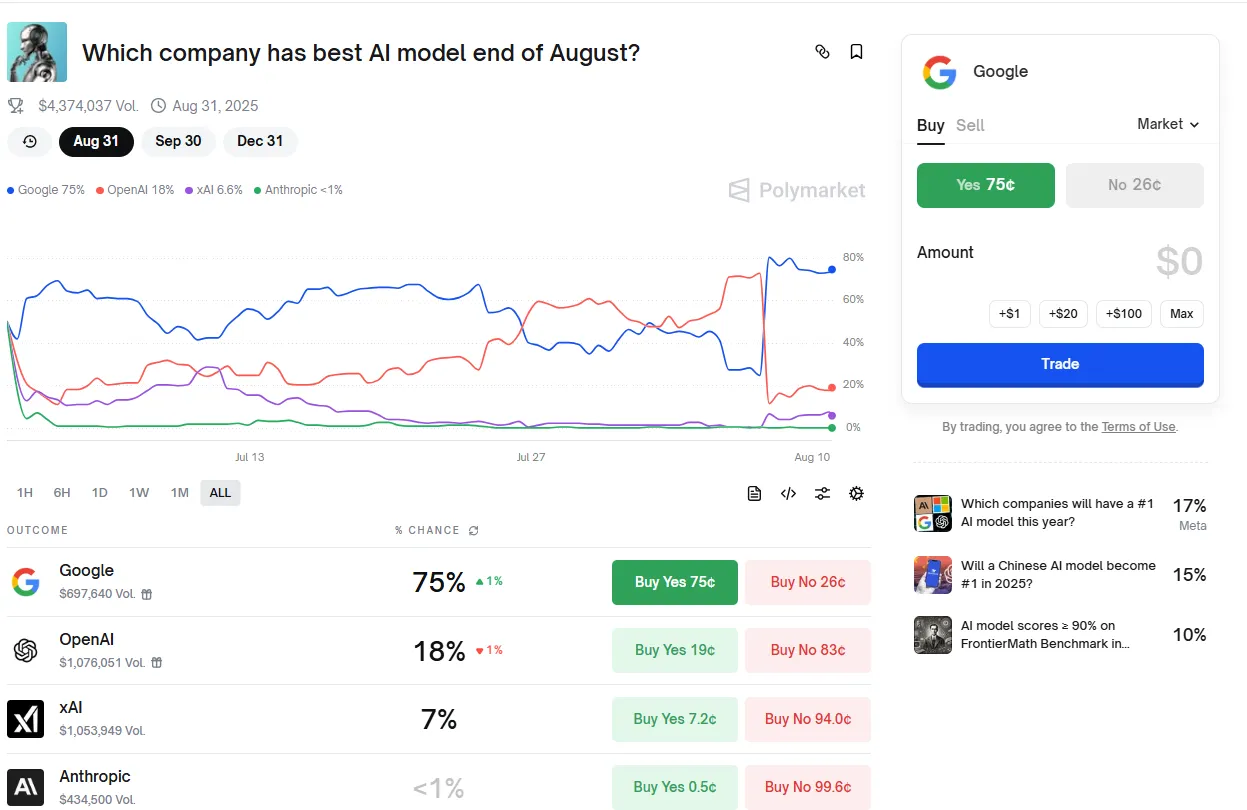
In brief
- Meta is pouring billions into AI, aiming to build “personal superintelligence” for users.
- The company launched Superintelligence Labs and is racing to train massive next-gen AI models.
- So far, AI mostly powers ads and engagement, raising questions about Meta’s real endgame.
Meta is investing billions in AI infrastructure and intensifying efforts to recruit talent from rivals as it accelerates its push into artificial intelligence.
But for all the talk of “superintelligence,” the company’s latest pivot raises questions of whether this is a genuine push for innovation or another high-stakes gamble.
Meta’s plan is sweeping and expensive.
In the second quarter of 2025 alone, the tech giant poured $17 billion into infrastructure, where CFO Susan Li said 2025’s total capital expenditure could hit $72 billion.
With even more to come in 2026, a large portion will go towards building Prometheus and Hyperion, named after Titans from Greek Mythology.
Meta CEO Mark Zuckerberg devoted most of Meta’s Q2 earnings call on Wednesday to AI.
“A lot has been written about the economic and scientific advances that superintelligence can bring. I am extremely optimistic about this,” Zuckerberg said during the call, but argued its greater impact could be in helping people lead more meaningful lives.
Meta launched a new division—Meta Superintelligence Labs—in June, acquiring AI companies and poaching AI talent from rivals like OpenAI and Google.
“I’ve spent a lot of time building this team this quarter,” Zuckerberg said. “The people who are joining us are going to have access to unparalleled compute as we build out several multi-GW clusters.”
The Meta Superintelligence Labs hires read like a who’s who of the AI industry, with names including Scale AI founder Alexandr Wang, former Github CEO Nat Friedman, and former OpenAI researcher Shengjia Zhao filling the ranks.
The team is working on successors to Meta’s Llama models, starting with 4.1 and 4.2.
“Our Prometheus cluster is coming online next year and we think it’ll be the world’s first 1GW+ cluster,” he continued. “We’re also building out Hyperion, which will be able to scale up to 5GW over several years. And we have multiple more titan clusters in development as well.”
Meanwhile, Meta AI is now embedded across Instagram, WhatsApp, and the Meta app, reaching 1.5 billion active users. Even Meta’s hardware division has latched on with Ray-Ban Meta glasses now featuring an embedded AI assistant.
Reactions on X to Meta and Zuckerberg’s superintelligence initiative were mixed, with some excited about the future of AI development at Meta and others pointing to other failed projects and scandals.
“I mean, with the amazing team of AI researchers that Meta Superintelligence Labs has today, I’m pretty sure we’re going to get to Superintelligence soon,” one user wrote.
“Zuckerberg pitching personal superintelligence for everyone feels like being invited to test drive a prototype rocket car; it’s thrilling in theory, but you can’t help wondering about the insurance,” another said.
Still, for all the futuristic framing, the real test will be whether Meta’s massive bet on superintelligence produces something other than incremental improvements to engagement metrics.
Whether or not Meta’s AI ambitions push it past rival AI developers, including OpenAI, Google, and xAI, or sputter out like the metaverse remains to be seen.
Earlier on Wednesday, Zuckerberg released a blog post detailing his vision for “personal superintelligence that knows us deeply, understands our goals, and can help us achieve them.”
“We believe the benefits of superintelligence should be shared with the world as broadly as possible,” he wrote.
Despite his optimistic view of the future, Zuckerberg cautioned that superintelligence will bring new and novel concerns.
“We’ll need to be rigorous about mitigating these risks and careful about what we choose to open source,” he said. “Still, we believe that building a free society requires that we aim to empower people as much as possible.”
Generally Intelligent Newsletter
A weekly AI journey narrated by Gen, a generative AI model.




